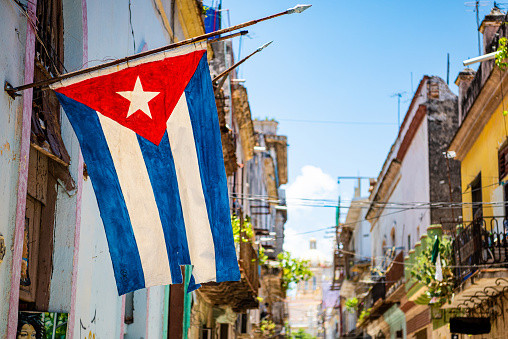
A top Cuban envoy held a rare meeting in Washington with US officials, but made no apparent progress on getting the island off a terrorism blacklist, diplomats said Thursday.
Cuban Deputy Foreign Minister Carlos Fernandez de Cossio met this week with the top officials for Latin America at the State Department and White House, Brian Nichols and Juan Gonzales respectively, diplomats from the two countries said.
It was a rare high-level meeting in Washington, although the neighbors hold routine talks on migration and transnational crime.
Former president Barack Obama restored US relations with Cuba, frozen for decades after Fidel Castro's turn to communism, and paid a landmark visit in 2016.
Obama's successor Donald Trump reversed many steps to reconcile and his administration, in one of its final acts, put Cuba back on a list of state sponsors of terrorism whose only other members are Iran, Syria and North Korea.
President Joe Biden has moved cautiously on Cuba and spoke out forcefully after authorities put down rare anti-government protests in July 2021.
A Cuban official described the continued inclusion on the black list as a sign of lack of political will ahead of the 2024 presidential election.
State Department spokesman Matthew Miller said that Nichols and the Cuban official discussed "human rights, migration and other issues of bilateral interest."
On the terror list, "we have not made any determination that I can report today," Miller said.
In March, Secretary of State Antony Blinken indicated to Congress that the administration had no plans to remove Cuba from the black list, which creates serious impediments to foreign investment.
The Trump administration made its determination without linking Cuba to any recent terrorist actions. It instead faulted Havana's refusal to extradite leaders of Colombia's National Liberation Army to the then right-wing government in Bogota.
Cuba's communist government is loathed by many Cuban-Americans who are influential in Florida, a top prize in presidential elections.




